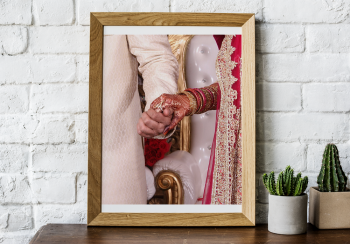What decides whether you click with a new friend, or have good chemistry with a possible romantic partner? You perhaps think that these procedures of interaction attraction are mysterious, or decided by a person’s unique personal attributes — a quick wit, for instance. However, Shivani Sadhoo says research in social psychology indicates that liking and loving are mostly triggered by simple, mundane factors such as how close your apartment is to the stairs.
These factors could be influential to make you more likable and, more essentially, to help you meet your fundamental need for a true social connection, shares Shivani Misri Sadhoo, India’s eminent psychologist and relationship counselor.
Sheer exposure impact
The more one is exposed to a specific thing, the more you tend to like it. This phenomenon is called the sheer exposure impact, this is why one seems to love familiar music to new tunes, elect political candidates having the most media exposure, and grow fonder of persons the more often we interact with them.
One can leverage the mere exposure impact to boost your likeability and assist you to connect with others. Make an attempt to be seen, repeatedly. Turn your camera on during online meetings. Comment on other people’s social media posts. Visit the gym at the same time every day to improve the odds of bumping into the same people. If you can opt for your office or cubicle, opt for one that is close to the break room where more people will see you.
In other words, make yourself visible. Just do not overdo it. Excessive exposure could backfire – evidenced by the fact that you may get sick of hearing your favorite song when it is overplayed.
Remember names
Remembering somebody’s name is vital since it signals that he/she is important to you. On the other hand, failing to remember somebody’s name – or other important aspects about them – weakens the closeness of the relationship.
One of the factors to connecting with others, then, is to remember names. The problems are that remembering a name could be difficult. One impactful, research-based strategy for remembering names is known as retrieval practice — constantly pulling information out of your brain. Shortly after being introduced to someone, retrieve his/her name from memory. Ask yourself: “What was his/her name?” Or, use their name while in conversation. The more consistently you retrieve a name from memory, the more likely you are to remember it.
Smile
In spite of the maxim to “never judge a book by its cover,” one mostly routinely judges people on the basis of their looks. One tends to assume that attractive-looking people are more competent and socially skilled compared to others. One also finds attractive people more likable.
There is great news for those who believe that beauty advantage is an unfair thing. A bright smile can instantly make someone more attractive. In one study, it asked people to rate the attractiveness of computer-generated faces. The faces differ in attractiveness, and whether they were smiling or showing a neutral expression. The results indicated that faces were seen as more attractive when they were smiling, which is consistent with earlier findings on the topic. What really surprised the researchers was that less attractive but smiling faces were rated quite highly as attractive faces without a smile. It was decided that “smiling can compensate for relative unattractiveness.”
If you wish to be perceived as more attractive, more likable – simply flash a smile.
Ask Questions
Be authentically curious about other people and ask them questions. People who ask more questions while in conversations are regarded as more responsive and are more liked by conversation partners. When you ask questions, specifically follow-up questions (“What was that moment like?”), you display that you are actively listening and interested in what that individual has to convey.
To make a good effect, be more interested in other people than you are in making a good impact.
Find Similarities
Studies show that you like people who share your interests, values, and personality traits. Hence, the old saying “birds of a feather flock together” is more correct than the popular belief that “opposites attract.”
When you try to make new friends, fill the deck in your favor by meeting individuals who share your interests. Then, find other things you have in common.
Make others feel good
On the basis of the reward theory of attraction, you like people who reward you, or whom you associate with good feelings. If you wish to enhance your likeability, make others feel good in your company. Be friendly and warm. Give genuine compliments. If you are going for a movie for a first date, opt for a happy film over a sad one.
Stay positive on social media, too. It has been seen that people who tend to make more negative posts on social media are liked less compared to those who make more positive posts. This does not mean that you cannot express your feelings genuinely when you are feeling anxious or depressed, but you might want to save negative disclosures for personal conversations with trusted friends.
Show your liking for them
Liking is mostly mutual. Rather, one of the most powerful factors of whether you will like someone is whether they like you.
In a small way, let another person know that you like them. You can do so using words (“I had so much fun hanging out today”) or through non-verbal behavior – by smiling when he/she enter the room.
Conclusion
Shivani says one can apply the science of attraction to enhance the odds that someone will like you. By doing it, you are not being manipulative. You are merely making it a lot easier to connect with others in this modern, often disconnected world.
Your Therapist Is Now Just Skype/Video Call Away
During the current challenging time, it’s common to experience anxiety, depression, sleeplessness, and relationship challenges at home. While you are under lockdown and maintaining social distancing norms to help the country to control the pandemic’s spread, your very own counsellor Shivani is now just a call and Skype video call away from you.
However, in this age of coronavirus, we hope to offer our therapeutic help. Change is difficult for all of us and changing the way you meet with your therapist is no exception. But try it before you disregard this option. This is a challenging moment in time, and fears and anxieties are running high.
You may find, telepsychology isn’t a second-rate option. Instead, it’s an effective and efficient upgrade to a valuable service!
Feel free to call Counselor Shivani Misri Sadhoo at +91-8860875040 for telephonic or video support and to book an online counselling session to address any relationship issues, emotional and psychological challenges.









